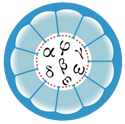Intercultural Skills
Intercultural Skills for adult educators, school teachers, and mentors
2021:
20-24 August 2021, Megalochori, Santorini Island, Greece
Working language: ENGLISH
SEMINAR PROGRAMME
Day 1 (Friday)
- Welcome and Ice-Breaking Activities
- Getting to know each other: Interview
- The educational contract: Participants’ hopes and fears for the course
- Definitions of essential concepts: “Identity” and “Culture”
Day 2 (Saturday)
- Key principles of an intercultural approach: “Self-determination”
- Key principles of an intercultural approach: “Equity” and “Interaction”
- Implications of diversity to adult education: Description of diversity in the European Society, taxonomy and examples of diversity
Day 3 (Sunday)
- Intercultural key skills of an adult educator: Diversity in the course group, heterogeneity in our classrooms, positive and negative implications of diversity, problem resolution
- Recognizing and promoting intercultural skills of adult learners: Defining key skills of individual intercultural competencies, techniques to recognize and promote individual intercultural skills
Day 4 (Monday)
- Action Planning: How to apply what was learned in the adult education classroom, in the adult education institution, in the community, short and long term measures
- Presentation of group assessment of the intercultural dimension
- Cultural programme
Day 5 (Tuesday)
- Reports on the visit and the course
- Networking activities
- Feedback and evaluation: Activities for evaluating all aspects of the course
- Farewell activities
Fees
Tuition fee: 70 €/ day/ person, which includes tuition and training materials.
Organizational costs: 100 €/ person, which includes administration costs, organizational costs, and VAT.
Learning Outcomes
At the end of the seminar, participants are expected to have acquired the skills that will enable them to:
- Clarify key concepts of Intercultural Education: Identity, Culture, the Right to Difference, the values of Equity and Interaction
- Explore diversity in Europe with the view to improving quality in adult education: Explore diversity in the societies represented in the course, institutional policies, diversity in the course group, heterogeneity in class, an intercultural approach in teaching
- Exercise and develop their intercultural skills with each other: Language and communication skills, empathy, guidance and counseling, cultural knowledge, etc.
- Review and plan their own work including how to:
• Generate and answer the relevant questions on diversity
• Apply active listening and communication rules
• Listen to different points of view
• Act like a cross-cultural counselor
• Work co-operatively
• Recognize and promote intercultural skills of their learners and of themselves
Methodology
Teaching methodologies have to assure interaction between facilitators and participants and among learners rather than transmit homogenized knowledge or techniques and ask for reproduction. This is especially true when intercultural skills are at question because they cannot be “learned” in a cognitive approach, but they need to be experienced and developed in interaction.
In accordance with the principles set out above, the training methodology developed for the course will focus on facilitating the objective-based interaction amongst all persons involved. As an intended side effect, participants will experience themselves and reflect on interactive and cooperative learning methods in an intercultural process, which they may consider and adapt for their work purposes.
It is a workshop design that seeks to reach out and include all learning styles by utilizing a wide range of pedagogies, including problem-solving, group and pair work, reflective discussion, experiential learning, brief didactic inputs on concepts and theories, and action planning, in order to apply what was learned. Special attention is given to involve participants’ regional backgrounds and experiences and to facilitate mutual exchange.
Follow-up
In order to facilitate and mutually support participants to apply and disseminate what they have learned, participants and the trainers will create an e-network as a forum for exchanging ideas, experiences, and materials. Networking will enhance the possibilities for further cooperation amongst its members on the basis of new partnerships and/ or projects on intercultural adult education.


